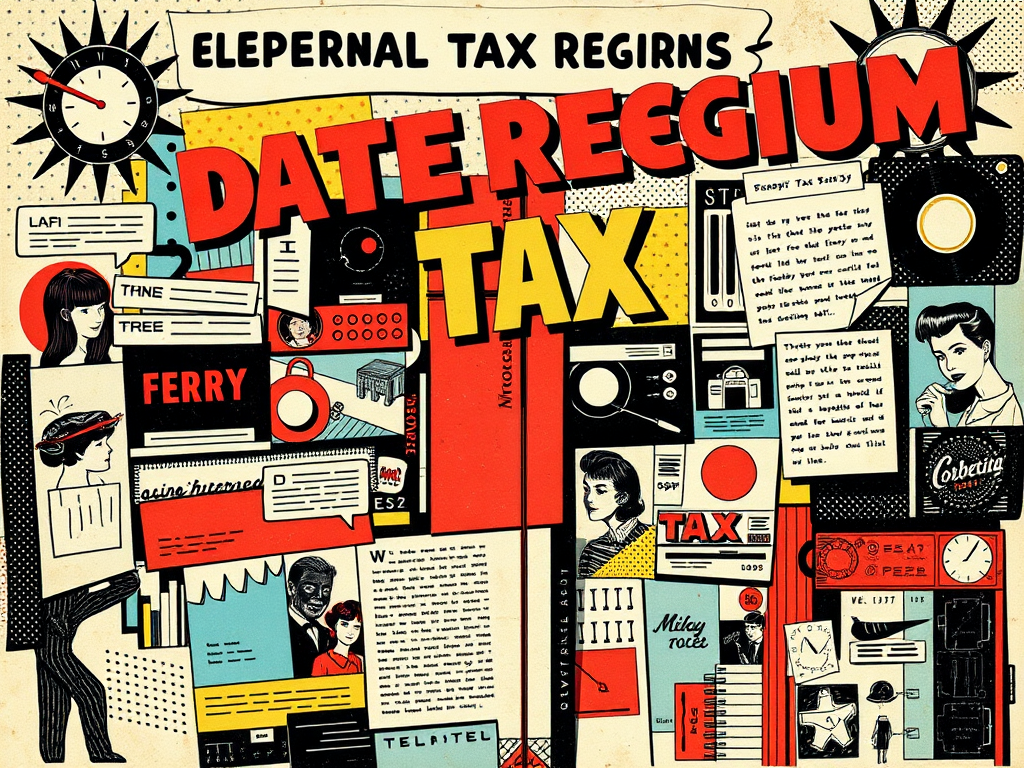
Choosing Your Tax Regime: Non-Dom vs. Pensioner vs. Relocation Scheme
Reading time: 15 minutes
Table of Contents
- Introduction
- Understanding the Greek Tax Landscape
- Non-Dom Tax Regime
- Pensioner Tax Regime
- Relocation Scheme
- Comparative Analysis
- Economic Impact on Greece
- Future Outlook
- Conclusion
- FAQs
Introduction
As global economic landscapes continue to evolve, countries are increasingly competing to attract high-net-worth individuals, skilled professionals, and retirees through attractive tax regimes. Greece, with its rich cultural heritage, stunning landscapes, and strategic location, has emerged as a compelling destination for those seeking favorable tax conditions. In this comprehensive analysis, we’ll delve into three key tax regimes offered by Greece: the Non-Dom Tax Regime, the Pensioner Tax Regime, and the Relocation Scheme. Understanding these options is crucial for individuals considering relocating to Greece, investing in real estate athens, or restructuring their global tax strategies.
Understanding the Greek Tax Landscape
Before we dive into the specifics of each tax regime, it’s essential to grasp the broader context of Greece’s tax system. The country has undergone significant reforms in recent years, aiming to simplify its tax code, attract foreign investment, and boost economic growth. These changes have resulted in a more competitive tax environment, particularly for individuals with substantial foreign-sourced income or those looking to retire in a tax-efficient manner.
Historical Context
Greece’s tax system has historically been characterized by complexity and high rates, which often deterred foreign investment and encouraged tax evasion. However, in the wake of the 2008 financial crisis and subsequent economic challenges, the Greek government has implemented a series of reforms aimed at modernizing the tax system, improving compliance, and creating incentives for foreign investment and relocation.
Current Tax Framework
The current Greek tax framework offers a progressive income tax system for residents, with rates ranging from 9% to 44% for employment income. Capital gains and dividend income are taxed at flat rates of 15% and 5%, respectively. However, the introduction of special tax regimes has created opportunities for significant tax savings for eligible individuals.
Non-Dom Tax Regime
The Non-Dom Tax Regime, introduced in 2020, is designed to attract high-net-worth individuals to transfer their tax residence to Greece. This regime offers a highly favorable tax treatment for foreign-sourced income.
Key Features
- Annual flat tax of €100,000 on global income
- Additional €20,000 for each family member
- Exemption from inheritance and gift taxes on foreign assets
- No obligation to declare foreign income sources
- Minimum investment requirement of €500,000 in Greek real estate, businesses, or government bonds
Eligibility Criteria
To qualify for the Non-Dom Tax Regime, individuals must:
- Not have been Greek tax residents for 7 out of the 8 years prior to application
- Prove a previous tax residence in a country with which Greece has a valid tax treaty or administrative cooperation agreement
- Invest a minimum of €500,000 in Greek assets within three years of application
Economic Implications
The Non-Dom Tax Regime has significant potential to attract substantial foreign investment to Greece. By offering a predictable and favorable tax environment, it encourages high-net-worth individuals to relocate, potentially bringing with them capital for investment in real estate, businesses, and other sectors of the Greek economy.
Pensioner Tax Regime
Introduced in 2020, the Pensioner Tax Regime aims to attract retirees from abroad, offering a flat tax rate on pension income and other benefits.
Key Features
- 7% flat tax rate on foreign pension income
- Exemption from inheritance and gift taxes on foreign assets
- No wealth tax on foreign assets
- Duration of 15 years
Eligibility Criteria
To qualify for the Pensioner Tax Regime, individuals must:
- Be retirees or near retirement age
- Relocate their tax residence to Greece
- Not have been Greek tax residents for 5 out of the 6 years prior to application
- Originate from a country with which Greece has a valid administrative cooperation agreement in tax matters
Economic Impact
The Pensioner Tax Regime has the potential to significantly boost Greece’s economy, particularly in regions popular among retirees. By attracting pensioners with stable incomes, it can stimulate local economies, increase demand for real estate, and contribute to the development of healthcare and leisure services catering to an older demographic.
Relocation Scheme
The Relocation Scheme, also known as the “brain gain” initiative, is designed to attract skilled professionals and entrepreneurs to Greece, offering tax incentives for those who transfer their tax residence and work activities to the country.
Key Features
- 50% tax exemption on employment income for 7 years
- Applicable to both employed and self-employed individuals
- No minimum investment requirement
- Potential for reduced social security contributions
Eligibility Criteria
To qualify for the Relocation Scheme, individuals must:
- Transfer their tax residence to Greece
- Not have been Greek tax residents for 5 out of the 6 years prior to relocation
- Provide services in Greece through an employment relationship or as self-employed
- Declare their intention to stay in Greece for at least two years
Economic Implications
The Relocation Scheme has the potential to address Greece’s brain drain issue by attracting skilled professionals and entrepreneurs. This influx of talent can contribute to innovation, productivity growth, and the development of high-value sectors in the Greek economy.
Comparative Analysis
When comparing these three tax regimes, it’s crucial to consider the specific circumstances and objectives of potential applicants:
Non-Dom vs. Pensioner Regime
The Non-Dom Regime is more suitable for high-net-worth individuals with substantial foreign-sourced income, offering a predictable annual tax liability regardless of income level. In contrast, the Pensioner Regime is tailored for retirees with foreign pension income, providing a low flat tax rate specifically on pension earnings.
Relocation Scheme vs. Others
The Relocation Scheme differs significantly from the other two, focusing on employment or self-employment income rather than passive income or pensions. It’s designed to attract working professionals and entrepreneurs, offering a substantial tax reduction on Greek-sourced income.
Investment Requirements
Only the Non-Dom Regime has a specific investment requirement (€500,000), making it potentially more challenging for some applicants. The Pensioner and Relocation schemes do not have explicit investment requirements, although relocating to Greece naturally involves some level of expenditure.
Economic Impact on Greece
The introduction of these tax regimes is part of a broader strategy to boost Greece’s economic recovery and growth. By attracting foreign investment, skilled professionals, and retirees, Greece aims to:
- Increase foreign direct investment
- Stimulate the real estate market
- Enhance productivity and innovation through skilled migration
- Boost local economies, particularly in popular retirement destinations
- Improve Greece’s fiscal position through increased tax revenues
Early indicators suggest that these regimes, particularly the Non-Dom and Pensioner options, have generated significant interest among potential applicants. The long-term economic impact will depend on the number of individuals who take advantage of these schemes and their subsequent economic activities in Greece.
Future Outlook
As global economic conditions evolve and competition for mobile talent and capital intensifies, Greece’s tax regimes may need to adapt. Potential future developments could include:
- Refinements to eligibility criteria based on observed trends and outcomes
- Introduction of sector-specific incentives to target industries crucial for Greece’s economic development
- Enhanced integration with EU-wide tax initiatives and regulations
- Potential expansion or limitation of the schemes based on their economic impact and public perception
It’s crucial for potential applicants to stay informed about any changes to these regimes and to consider how they align with long-term personal and financial goals.
Conclusion
Greece’s introduction of the Non-Dom Tax Regime, Pensioner Tax Regime, and Relocation Scheme represents a strategic move to attract diverse groups of individuals and capital to the country. Each regime offers unique benefits tailored to specific demographics, from high-net-worth individuals to retirees and skilled professionals.
For potential applicants, the choice between these regimes should be based on a careful analysis of personal circumstances, financial goals, and long-term plans. Factors to consider include the nature and source of income, investment capacity, retirement status, and professional aspirations.
From an economic perspective, these tax regimes have the potential to significantly contribute to Greece’s economic recovery and growth. By attracting foreign investment, skilled labor, and steady retirement income, Greece aims to stimulate various sectors of its economy, from real estate to high-value services.
As with any major financial decision, individuals considering these tax regimes should consult with tax professionals familiar with both Greek and international tax laws. The landscape of international taxation is complex and ever-changing, making expert guidance invaluable in navigating these opportunities effectively.
Ultimately, Greece’s tax regimes offer compelling options for those seeking to optimize their global tax position while enjoying the country’s rich culture, beautiful landscapes, and Mediterranean lifestyle. As the global economy continues to evolve, such tax strategies may become increasingly important for individuals and families planning their financial futures across borders.
FAQs
1. Can I combine multiple Greek tax regimes?
No, individuals can only benefit from one tax regime at a time. You must choose the most appropriate regime based on your circumstances and financial goals.
2. How does the Non-Dom regime affect my tax obligations in my home country?
The impact on your home country tax obligations depends on your country’s specific tax laws and any tax treaties with Greece. It’s crucial to consult with tax professionals in both countries to understand the full implications.
3. Are there any restrictions on the type of work I can do under the Relocation Scheme?
The Relocation Scheme doesn’t specify restrictions on the type of work, but you must provide services in Greece through employment or self-employment. The work should contribute to the Greek economy and align with your declared skills and expertise.
4. Can I switch from one tax regime to another after moving to Greece?
While it may be possible to switch regimes, doing so could have complex tax implications. Any change would need to comply with the eligibility criteria of the new regime and may reset certain time-based benefits.
5. How does property ownership in Greece affect my eligibility for these tax regimes?
Owning property in Greece doesn’t automatically disqualify you from these regimes. However, for the Non-Dom regime, property investment can contribute to meeting the €500,000 investment requirement. For all regimes, ensure that any previous property ownership doesn’t conflict with the residency requirements.

Article reviewed by Enzo Almeida, Business Scaling Expert | Growth Strategist | Driving Expansion in Emerging Markets, on March 27, 2025
